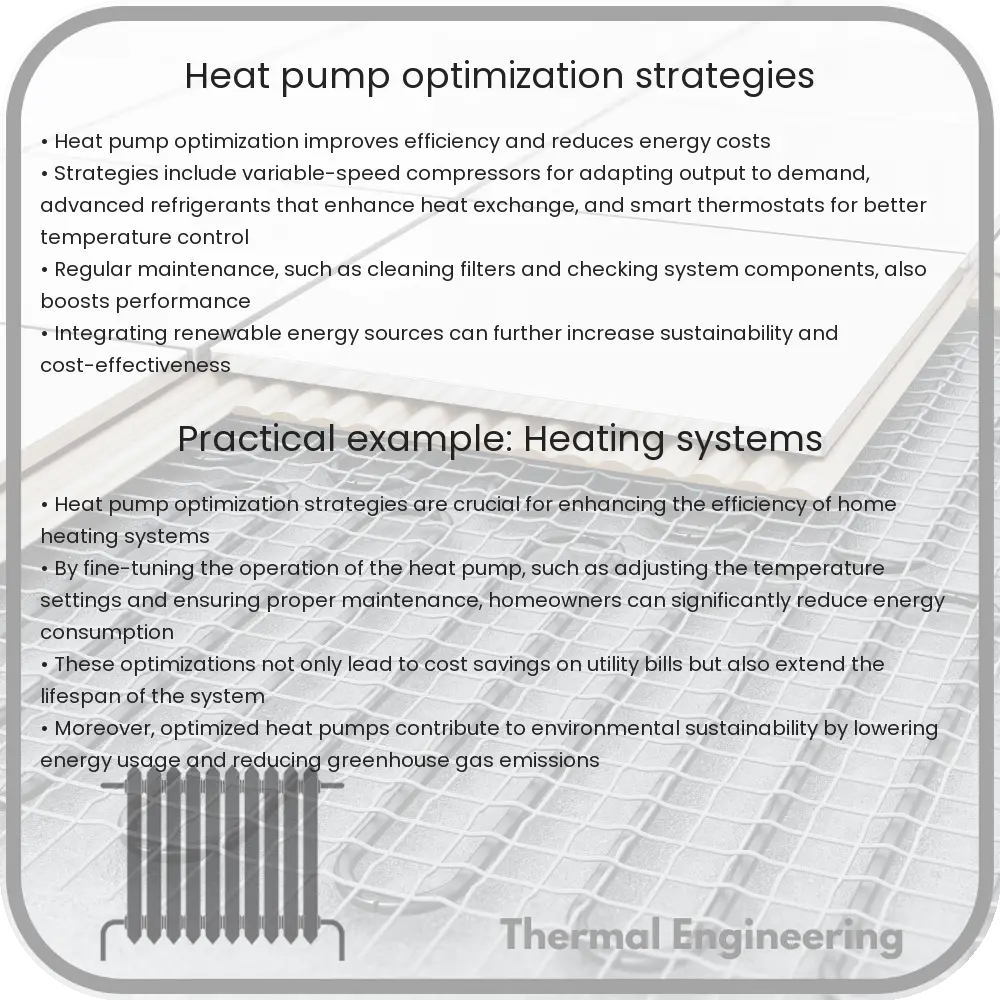Learn strategies for optimizing heat pump performance in HVAC systems to enhance efficiency and reduce costs.

Understanding Heat Pump Optimization Strategies
Heat pumps are a fundamental component of modern heating, ventilation, and air conditioning (HVAC) systems, utilized to transfer heat from one environment to another efficiently. Effective optimization of heat pump operations not only enhances energy efficiency but also extends the lifespan of the equipment and reduces operational costs. This article will explore key strategies for optimizing heat pump performance.
Improvement of System Design
One primary method for optimizing heat pump efficiency begins with system design. This includes the accurate sizing of the heat pump, which is crucial for ensuring that the system operates optimally to meet the thermal load demands without excessive cycling or energy waste.
- Choosing the right size of the heat pump is vital; too large a unit can lead to frequent on-off cycling, reducing efficiency and component lifespan.
- Integrating advanced components such as variable frequency drives (VFDs) can enhance control over the compressor speed, leading to better energy management and reduced wear and tear from less frequent cycling.
Thermal Load Management
Managing the thermal load is another effective strategy for optimizing heat pump performance. By reducing the overall load, the heat pump can operate more efficiently:
- Improving building insulation and sealing leaks to maintain the desired temperatures with less energy.
- Utilizing smart thermostats can help in maintaining optimal temperature settings based on occupancy and weather conditions, thereby reducing unnecessary heating or cooling.
Regular Maintenance
Regular maintenance is critical to the efficient operation of heat pumps. A well-maintained system operates more efficiently than one that is neglected:
- Cleaning or replacing air filters regularly to ensure maximum airflow and heat exchange efficiency.
- Checking and sealing ductwork to prevent loss of heated or cooled air.
- Ensuring that the refrigerant charge and the flow rates are at their optimal levels as per manufacturer specifications.
Advanced Control Strategies
Utilizing advanced control systems can significantly improve the efficiency of heat pump operations. Such systems optimize the performance based on real-time data:
- Intelligent controls that adjust the operation based on external weather conditions and internal temperature demands.
- Integration of IoT (Internet of Things) technology to monitor performance and predict maintenance needs before failures occur.
Exploring Renewable Integration
Integrating renewable energy sources with heat pump systems can further enhance efficiency and sustainability. Solar and geothermal energies are excellent complements to heat pump technology:
- Solar thermal panels can be used to increase the temperature of the heat source, which makes the heat pump operation more efficient.
- Geothermal heat sources provide a stable temperature for heat pump operation, optimizing performance regardless of external weather conditions.
Conclusion
Optimizing the performance of heat pumps involves a multifaceted approach that includes improved design, load management, regular maintenance, advanced controls, and potential integration with renewable energy sources. By applying these strategies, users can significantly enhance the efficiency, effectiveness, and longevity of their heat pump systems, leading to reduced environmental impact and lower energy costs.